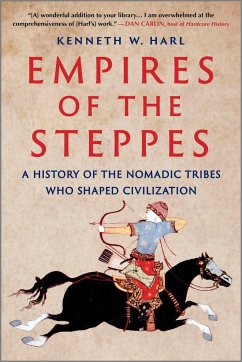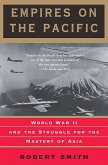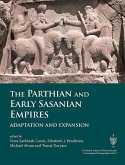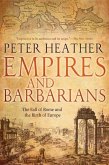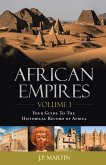“A vibrant account of how roaming warlords shaped technology, religion and culture.” —The Guardian The barbarian nomads of the Eurasian steppes have played a decisive role in world history, but their achievements have gone largely unnoticed. These nomadic tribes have produced some of the world’s greatest conquerors: Attila the Hun, Genghis Khan and Tamerlane, among others. From a single region emerged a great many peoples—the Huns, the Mongols, the Magyars, the Turks, the Xiongnu, the Scythians, the Goths—all of whom went on to profoundly and irrevocably shape the modern world. In this new, comprehensive history, Professor Kenneth W. Harl vividly re-creates the lives and world of these often-forgotten peoples from their beginnings to the early modern age. “From Attila to Genghis Khan via Prester John, and from the terracotta army of Qin Shi Huang to the walls that Alexander built to hold back the hosts of Gog and Magog, this is a history of epic scope.” —Martyn Rady, author of The Habsburgs

